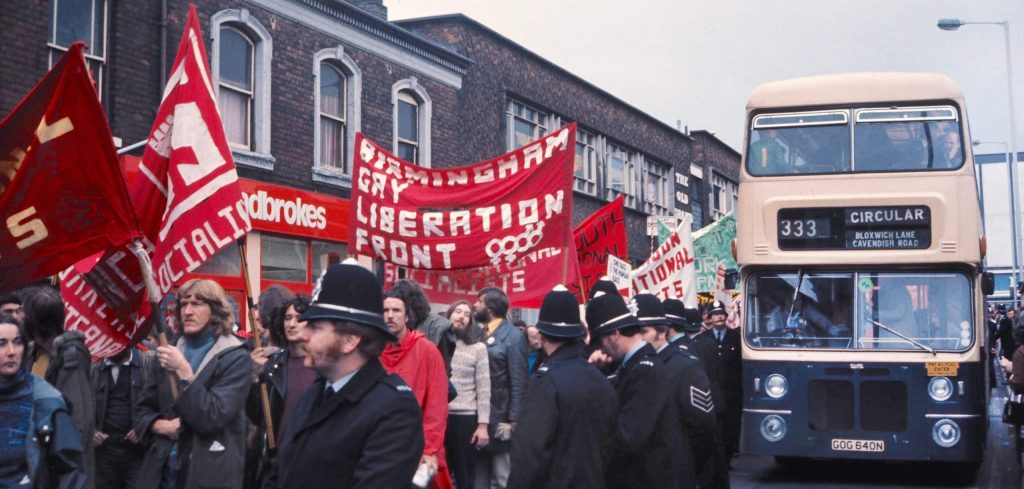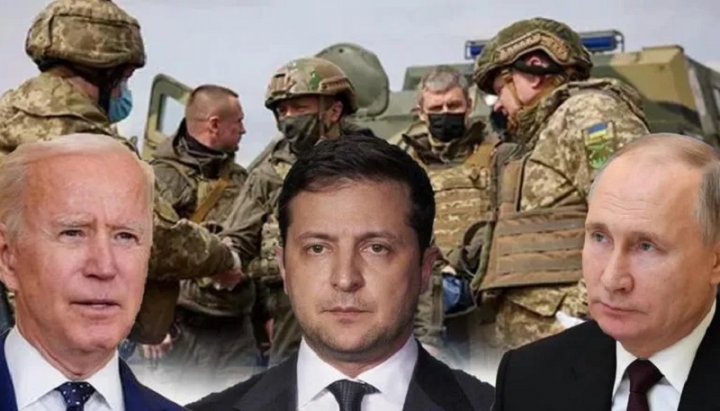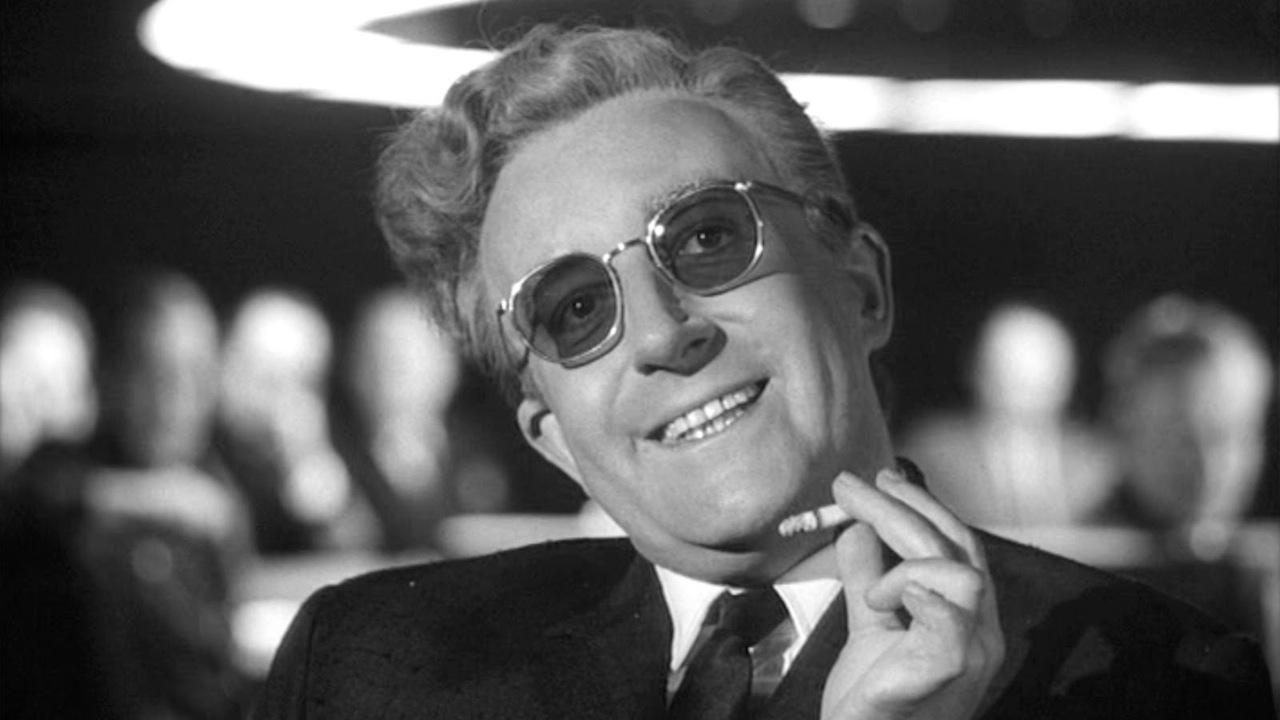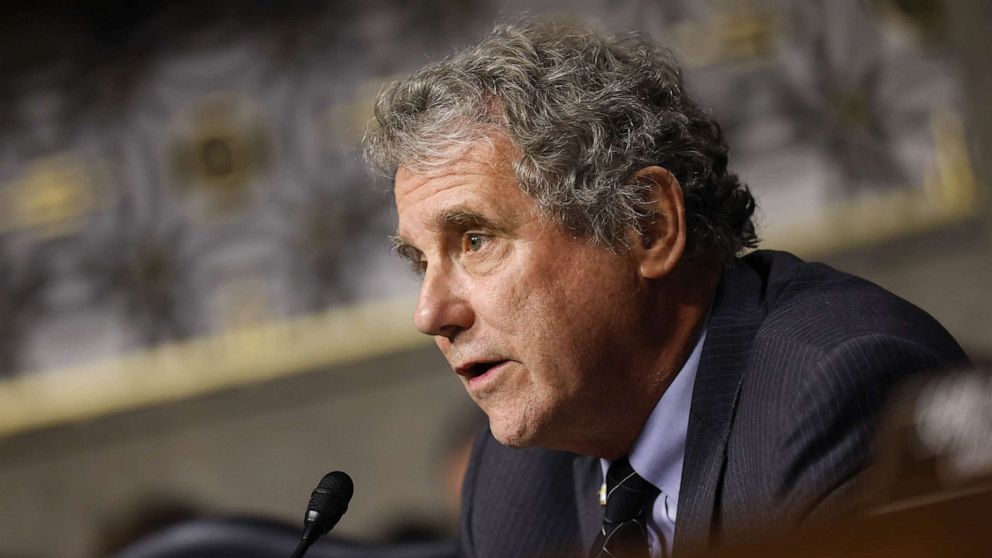Sergei Prokofiev died 70 years ago today, overshadowed by the death of Josef Stalin, who had banned much of his work. But Prokofiev’s brilliant musical compositions have outlived him and still sound fresh and exciting to modern listeners.

Sergei Prokofiev, 1918. (Library of Congress via Wikimedia Commons)
BYSIMON BEHRMAN
03.05.2023
Jacobin
Two of the twentieth century’s most brilliant composers, Sergei Prokofiev and Dmitri Shostakovich, produced some of their best work in the shadow of Josef Stalin’s dictatorship. Like so many Soviet writers and filmmakers, they attracted the ire of Stalin’s cultural commissars, precisely because of their creativity.
While Shostakovich lived to see the end of the worst excesses of Stalin’s rule, and thus greater space in which artists could express themselves, Prokofiev had the horrible luck to die on the very same day as Stalin in 1953. As a result, the Soviet press barely reported on the death of one of the country’s greatest artists.
Even his coffin had to be taken by hand through back streets from his Moscow apartment, as a hearse was prohibited from picking it up to make space for the crowds thronging the roads for Stalin’s funeral. But Prokofiev’s work has escaped from Stalin’s shadow to enjoy lasting and deserved renown.
Breakdown of Tradition
Sergei Prokofiev was a vital transitional figure in musical history. Born in 1891, he began to compose as a child prodigy in the shadow of the great romantic Russian tradition of Pyotr Tchaikovsky, Alexander Glazunov, and Nikolai Rimsky-Korsakov — the latter two were also teachers of the young Prokofiev at the Saint Petersburg Conservatoire in the first decade of the twentieth century.Sergei Prokofiev’s work has escaped from Stalin’s shadow to enjoy lasting and deserved renown.
At the same time, his maturation as a man and composer took place against the backdrop of the breakdown of that tradition in favor of the mystical expressionism of Alexander Scriabin and the angular modernism of Igor Stravinsky. In spite of the turbulent and extreme contrasts in stylistic influences, Prokofiev managed to develop a strong musical personality and highly distinctive style of his own.
On the one hand, his music often has lush melodies and harmonies, while on the other, dissonances abound. There is a romanticism in much of his music, and yet it always sounds very much of the twentieth century. Whereas many composers go through periods in their style, Prokofiev tended to move back and forth between the romantic and the modern, or to overlay them in the same piece.
His relationship to his times also has its peculiarities. Like Stravinsky and Shostakovich, he found his life disrupted and dominated by the Russian Revolution of 1917 and its consequences. Stravinsky defined himself ever after in opposition to communism. Shostakovich took inspiration from the revolution and remained engaged — albeit often highly critically — with socialist ideals for most of his life.
Prokofiev, however, seems to have been largely disengaged from politics. In the summer of 1917, while the revolution reached a particularly tense and violent point, he retreated to the countryside to write the lighthearted Classical Symphony (1917), inspired by music of the eighteenth century. He left Russia in 1918, not fleeing the new Soviet power, but so that he could take up lucrative offers to perform in the United States and Western Europe.
Return to Moscow
He led a largely itinerant life, performing his works as a pianist and conductor around the world, before returning to the USSR in 1936. The decision to return, precisely at the moment when Stalin’s dictatorship was going full throttle in its purges, may seem very odd. Yet this is only the case when we look at it in terms of the political context.Prokofiev’s move back to the USSR was mostly down to his homesickness and to the fact that he would be more financially secure there.
For Prokofiev, the move back to the USSR was mostly down to his homesickness and to the fact that he would be more financially secure there, allowing him to focus on his composing, rather than having to rely on endless touring and performing in the West. In short, the radical upheavals of the interwar period appeared to be mere background for him, important only insofar as they affected his ability to make his musical career.
A fascinating insight into Prokofiev’s worldview can be found in his published diary from his first return to the USSR for a concert tour in early 1927. At this time, the revolution was at a key inflection point. Leon Trotsky and his followers were effectively in opposition to the regime, but they were still free to speak out, and Stalin had yet to fully assert his dominance.
Culturally, life was still very open, with a great deal of artistic experimentation. The glimpses of the famous conductorless orchestra Persimfans in rehearsal and performance in Prokofiev’s diaries is particularly tantalizing. His keen eye and cool detachment from the politics makes for an often interesting (although superficial) picture.
For example, at one point he expressed an interest in attending a public lecture by Trotsky in Moscow because Trotsky was known to be such a great speaker, but Prokofiev’s handlers encouraged him to avoid it and go to a concert instead. Coming out of the concert he noticed a large crowd outside the venue where Trotsky was speaking:
One could sense that the atmosphere of Trotsky’s lecture had been electric and we were glad we had not gone: we might have got into political trouble and for no good reason at all.
Insofar as he expressed political opinions, they tended to be rather cynical.
Satire and Grotesquery
That said, he was an artist of his time. Coupled with his immense skills in creating orchestral color, melody, and rhythmic vitality, this characteristic not only made his music highly engaging in its own terms, but also enabled it to capture much of the energy of the revolutionary period and of a rapidly industrializing society.Prokofiev’s music captured much of the energy of the revolutionary period and of a rapidly industrializing society.
When he was still in his twenties, he had already developed a distinctive modernist voice in works such as Chout (1915/1920), the Scythian Suite (1914–15), the third and fourth piano sonatas (both 1917), and most especially in the opera and orchestral suite The Love for Three Oranges (1919/1924). All of these pieces illustrate his distinctive angular style, and his ability to develop great spans of resolutely tonal music that are nonetheless full of spiky dissonances fully integrated into the whole.
Another aspect of his music, particularly in the 1920s, was grotesquery. The Love for Three Oranges, for which Prokofiev wrote the libretto as well as the music, is loosely based on an eighteenth-century commedia dell’arte play. It is part Brechtian satire, part farce.
Even by the standards of comic opera, the story is often outrageous. It begins with a debate between different theatrical forms. A key moment involves a witch falling over and exposing her underwear, and one character is a fairy who emerges from an orange only to be turned into a giant rat.
The Piano Concerto No. 2 (1912/1923) contains a fiendishly difficult scherzo, in which the pianist has to maintain an uninterrupted and fast-paced series of runs, chased by “whoops” from the orchestra. This sense of musical fun and adventure is one of the most attractive elements in his music.
Satirical and grotesque elements were a feature of much art that followed the Russian Revolution, expressing perhaps the confidence that followed the comprehensive overthrow of a backward and autocratic regime. One can hear this in the music of Shostakovich, and it was also a distinctive feature in the writings of Mikhail Bulgakov, the duo Ilya Ilf and Yevgeny Petrov, and the radical theater of Vsevolod Meyerhold.
Meyerhold was particularly close to the modernist composers of the period, including Prokofiev. However, a crude Stalinist narrative later emerged of untrammeled Soviet progress, favoring a style known as Socialist Realism, which promoted grandiosity and populism over artistic subtlety. This had effectively stamped out the satirical edge in Soviet art by the late 1930s.
Apex and End Point
Prokofiev’s decision to return to live in the USSR at a time when modernism in art was being effectively prohibited did lead to a turn toward a more conservative musical style in certain works, for example in the operas Semyon Kotko (1939) and War and Peace (1941–43), and the ballet Cinderella (1940–44). There were also, for the first time in his career, clear attempts to be more populist with scores for movies such as Lieutenant Kije (1933–34) and Sergei Eisenstein’s Alexander Nevsky (1938–39), along with the evergreen piece for children, Peter and the Wolf (1936).All artists were forced to adapt their style to Socialist Realism if they were to survive at all, much less continue their careers in the USSR.
These observations are not meant as a criticism. For one thing, all artists were forced to adapt their style to Socialist Realism if they were to survive at all, much less continue their careers in the USSR. Prokofiev’s later operas are not to my taste, but they do have a secure place in the repertoire of opera houses around the world.
On the other hand, the Lieutenant Kije Suite is one of the most enjoyable pieces I know, and yet it has great pathos, too. The opening moments, with a haunting solo trumpet followed swiftly by a light march, set the whole tone of the piece. It ends with that same solo trumpet melody, rather than the expected big bang.
Alexander Nevsky is often thrilling, especially in the music for the battle on the ice between the title character’s army and the Teutonic invaders. And Peter and the Wolf is still, over eighty years later, one of the best introductions to the orchestra and to classical music in general.
During this period, Prokofiev also produced one of the true masterpieces of the twentieth century, the ballet score Romeo and Juliet (1935–36), which has much of his signature angularity, allied to memorable melodies. Indeed, his ballet music represents both an apex and an end point of the great tradition of classical ballet music. His music of the 1930s is the core of his secure place in the repertoire and his continuing popularity today.
New Adventures
Like Shostakovich and others, Prokofiev continued to be much more challenging and musically adventurous in smaller-scale works, such as his Violin Sonata No. 1 (1938). This is especially the case in the sixth, seventh, and eighth piano sonatas (1939–44), which are collectively known as the War Sonatas. These are pieces that are tremendously challenging for even the greatest pianists — not just technically, but also musically in capturing subtle shifts in feeling.The hope that accompanied the victory over fascism led both Prokofiev and Shostakovich to attempt a revival of the earlier revolutionary style.
The hope and no doubt sense of relief that accompanied the victory over fascism in 1945 led both Prokofiev and Shostakovich to attempt a revival of the earlier revolutionary style of satire and freer uses of dissonance. In that year, both composers presented a new symphony. Shostakovich’s Symphony No. 9 radically undermined the expected victory symphony with a relatively short, small-scored, and lightweight piece.
Prokofiev’s Symphony No. 5 is much more equivocal in terms of tone. It is a tightly structured piece and can be enjoyed in a fairly straightforward way, and it immediately became one of his most popular works in the USSR and abroad. There are some marvelously big tunes and exciting climaxes, and mostly this has the character of a grand victory piece.
The patina of victory was enhanced when the premiere in Moscow, conducted by the composer, had to be delayed a few minutes while military guns outside fired to celebrate the Soviet army crossing into Germany. Prokofiev described the piece as “a hymn to free and happy Man, to his mighty powers, his pure and noble spirit.”
Yet one does have to carefully scrutinize public pronouncements made under the harsh repression of Stalin’s dictatorship. The second movement is very playful, with some of the angularity of Prokofiev’s works from the 1910s and ’20s, while the third is dark, often punctuated with his trademark dissonances. The grinding chords of the final movement evoke big, mechanized processes — a sort of aural equivalent of the factory scenes in Charlie Chaplin’s Modern Times.
It is at the climax of the symphony that things unexpectedly take an ambiguous turn. We appear to be headed toward a heroic conclusion when the music starts to break out into a wild frenzy. The orchestration thins out, leaving a string quartet apparently playing out of key. A trumpet interjects with a sustained note awkwardly guiding the final chord back to the home key of B-flat.
This ending has an interesting parallel with Shostakovich’s own Symphony No. 5 (1937), which also ends with a subtle undermining of heroism. Indeed, Shostakovich made a similarly deceptive public statement about his fifth, saying that it represented the “triumph of socialist man.” Both composers were highly adept at exploiting the ambiguities possible in nonvocal music.
The Zhdanov Decree
Whatever misgivings the regime had about the style employed by Prokofiev and others at the end of the war, the criticisms were relatively muted. Perhaps as a result, Prokofiev returned to a much more challenging style in his Symphony No. 6 (1945–47). But Stalin’s cultural commissar Andrei Zhdanov put a stop to any perceived weakening of the doctrine of Socialist Realism in February 1948. Prokofiev was denounced by name in the “Zhdanov Decree,” along with Shostakovich, Aram Khachaturian, and others.Stalin’s cultural commissar Andrei Zhdanov put a stop to any perceived weakening of the doctrine of Socialist Realism in February 1948.
Immediately, many works of these composers were banned outright, and their music was dropped from performances in general. Prokofiev slid quickly into dire financial circumstances as a result. This, combined with poor health, led to a sad decline in the last few years of his life. If that were not enough, his ex-wife, the mother of his children, was sent to the gulag in 1947, from which she would not emerge until the late 1950s, long after his death.
During those last years, he produced only a handful of works, mostly small, minor pieces. The major works from this period include the final Symphony No. 7 (1951–52). Inspired by the great cellist Mstislav Rostropovich, he also wrote a Cello Sonata (1949) and the Symphony-Concerto for Cello and Orchestra (1950–52).
All of the pieces, especially the works for cello, have a level of introspection and depth of emotion hitherto rare in Prokofiev’s music, with the exception of his War Sonatas. They are hauntingly beautiful, with an added poignancy for listeners aware of the difficulties that marred the end of his life.
Prokofiev’s work stands, together with that of Shostakovich, as the pinnacle of music in the USSR. His detachment in terms of emotion and politics means that his music does not express all the hopes and despair of the Soviet experiment in the way that Shostakovich’s does, nor does it as often reach the same emotional depths. But, technically, he was perhaps the better composer.
His ability to hold onto the great romantic Russian tradition while also being fearlessly inventive and modernist meant he was the guide and inspiration for a whole line of Soviet composers, from Shostakovich to Khachaturian and Alfred Schnittke. He was one of the composers that defined modernism in the first half of the twentieth century, and much of his music still sounds fresh and exciting, even seventy years after his death.
CONTRIBUTOR
Simon Behrman is the author of Shostakovich: Socialism, Stalin & Symphonies.












